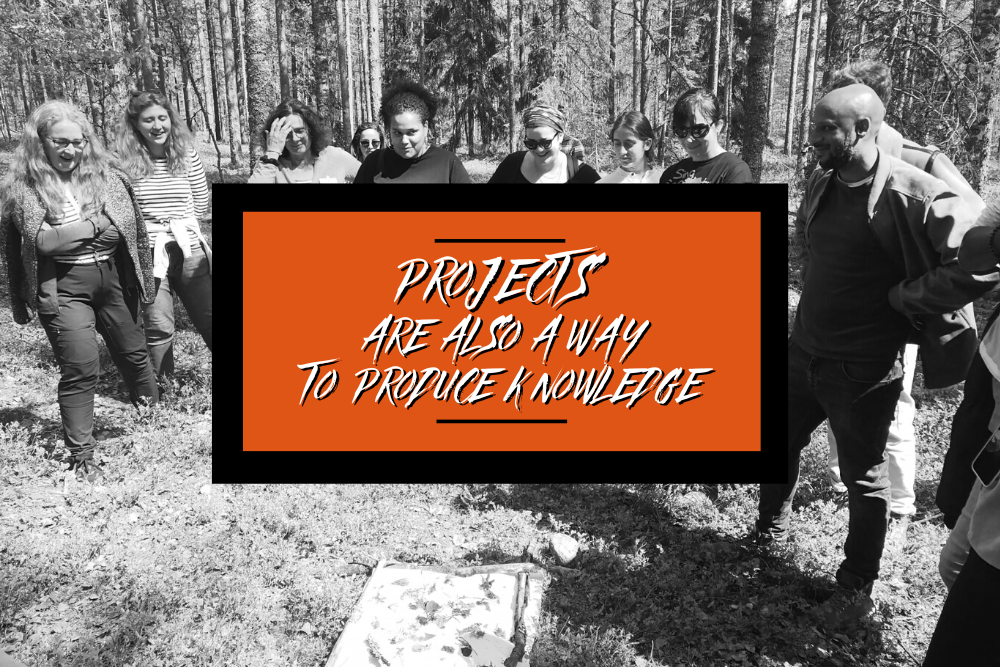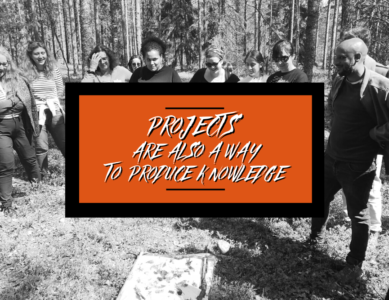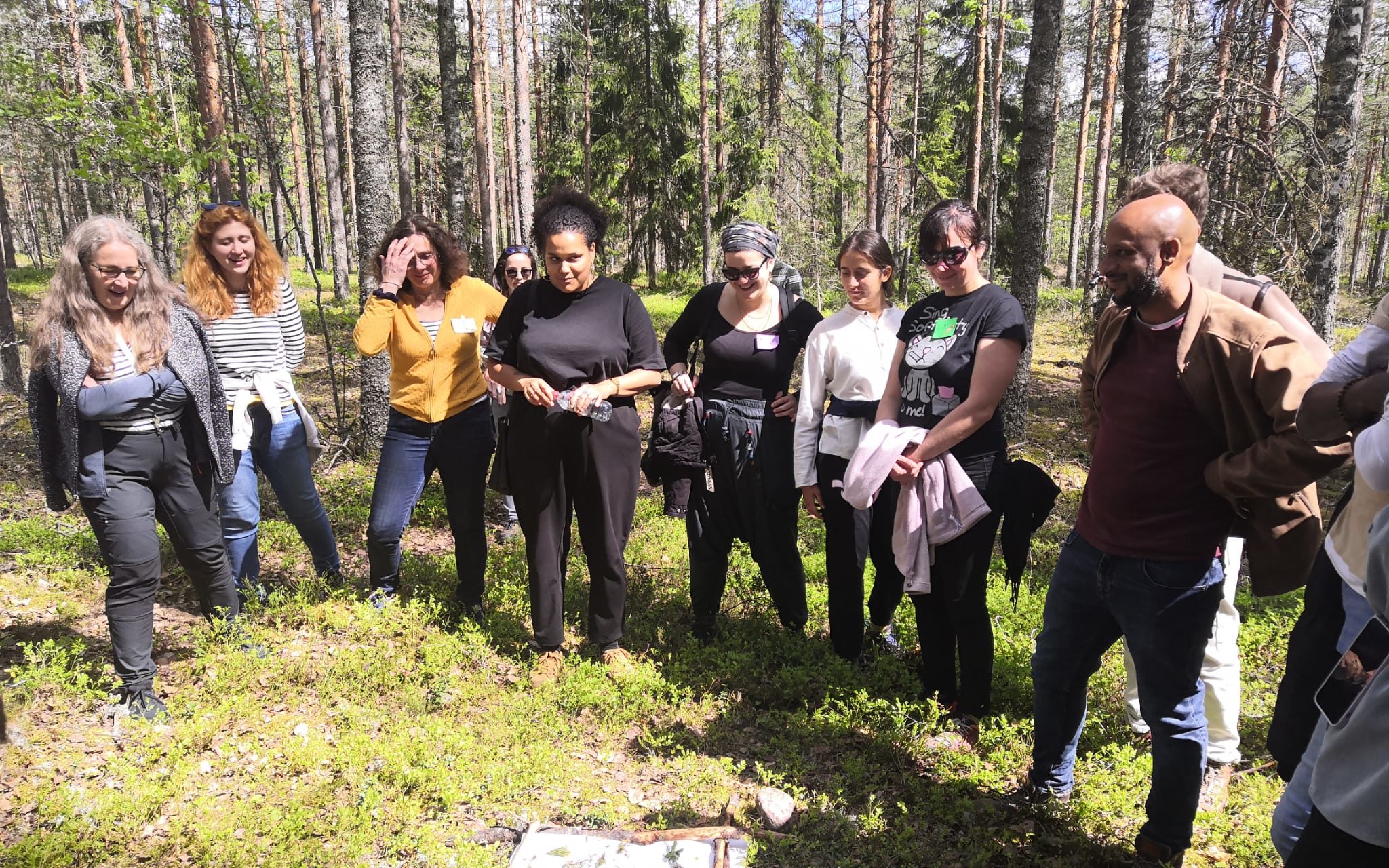
Valo-Valmennusyhdistys together with the Humak University of Applied Science has participated in the international Erasmus+ project called “Opening Universities for Youth in Europe” The project is at its’ end and for us, it is the right time to summarise the highlights from 3 years of cooperation.
The main aim of the project was to develop an action-research project using non-formal educational methods. The project involved 4 countries: Finland, France, The United Kingdom and Turkey. In each country, the project was implemented in cooperation between a university and 1 or more civil society organisations while considering young people in the risk of exclusion from society.
What have we learnt and experienced during the project?
Freedom of actions: We had the freedom to develop actions based on our local context while respecting the specific situations of the participating young people. Activities were not pre-defined and we could try different approaches to the topic of accessibility of higher education. In the beginning, the project seemed a bit confusing, but it turned out to be an interesting opportunity to explore. Activities run in Helsinki can be best described as a spiral:
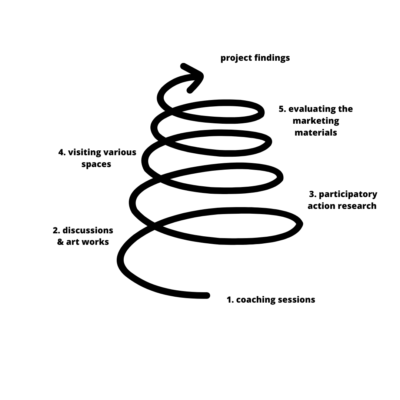
We started with the coaching sessions and based on the experiences we continued with more or less facilitated discussions while doing artwork. From there we moved to more focused sessions using participatory action research methodology that was accompanied by the usage of photography, collages or other craft works making.
The photographs captured different university spaces and we moved from there to explore the idea of belonging to the different environments while visiting various places around Helsinki. The topic of representativeness came into discussion during these visits and it was later deeper investigated when evaluating the marketing materials of selected Finnish higher education institutions.
The variety of activities done in the project was stunning. The freedom perceived at the beginning as confusing turned out to be one of the most valuable experiences within the project. The diverse activities allowed us to make the project topics interesting for very different people who benefited from the divergent ways of expressing themselves. The findings we collected within the project would not have been collected otherwise.
Research & Practice: I will explain this part from a personal perspective. When I had studied at the university I wanted to be nothing else than social work practitioner. After being in the field for 9 years and working with very different target groups, I realised how little of their experiences are reflected in social researchand how often the research findings are interpreted incorrectly. I felt I wanted to be a researcher instead because I believed I could do the research better! I studied few more years and I have found it very useful to be a practitioner with research knowledge. Practitioners have a direct link with the target groups and they usually understand their lives in context more appropriately than researchers. But practitioners very often do not have sufficient knowledge or skills to run research. More importantly, they do not have time to systematize the knowledge they gain while just being present with people whom they work with.
In this project, we explored how the participatory action research methodology can be utilised by youth workers as a tool to be used together with young people. I believe in its potential and I also believe participatory action research should be discussed more in our local circumstances. At the same time, I also feel we need to explain regularly why writing matters, why practitioners should do it more and how we can use e.g. media for knowledge sharing if we do not prefer to write.
It is just a habit to master! It is quite typical, that the university staff members reserve time to publish some findings from the project, while practitioners very rarely do so and target groups do not do it almost at all. The knowledge seems to be generated solely by academics, because this is what we all perceive as knowledge: the neat article in a peer-reviewed journal.
Travels with participants: Thanks to the funds we were able to travel with project participants to our meetings. Meetings were organised in every involved country and the experience for young adults was just amazing! Travelling broadens perspectives and brings new friendships and possibilities. One of our young people started to save money after she visited our partner organisations in France, and she managed to travel there afterwards as a volunteer for several weeks. Another young person was able to pray in a mosque which was an amazing experience for a religious person with no such opportunity in Finland.
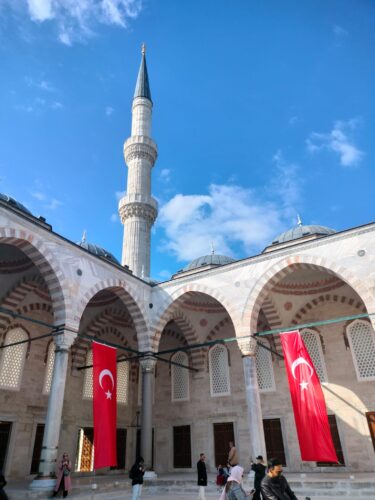
Erasmus is for many reasons a valuable program and we all think, that it truly helps people in overcoming their prejudices and building a more tolerant society. The possibility of travelling with participants in this project is a nice example to follow when planning other cooperations.
International cooperation: people have different working styles, expectations, experiences and personalities. It’s well known, that when multicultural teams are properly managed, they are more effective, more innovative and produce better quality results. This is for me one of the main reasons to cooperate internationally. We can together build something, that none of us could otherwise do individually.
We were influenced so much by other partners’ ways of work, their theoretical standpoints and youth work practices. Our activities in Finland would not have been the same if we worked alone. Each of us brought something new, innovative, and valuable into the discussions. Now, when the project is over we already feel we would do things differently when we had another chance…
And the chance might come. The project is almost over, but several cooperations continue…
